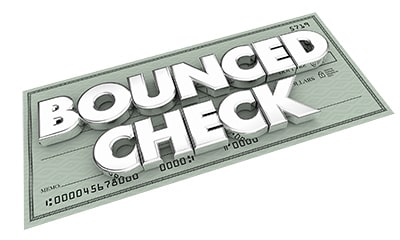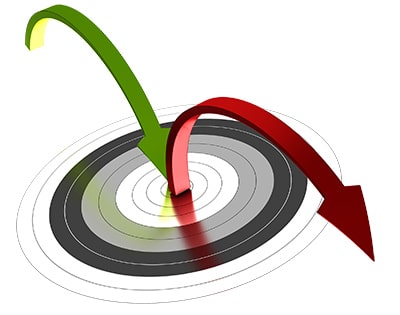Bounced Cheques no longer a Criminal Offense Post 2 January 2022
“The moment I write out a cheque, it’s an asset I have written off” – Shiv Nadar.
 The UAE being a business hub with a growing economy, cheques are one of the common forms of payments and a technique used for security. There are certain hardships with cheques usage, such as bounced or dishonored cheques for various reasons, which can lead to civil or criminal legal action.
The UAE being a business hub with a growing economy, cheques are one of the common forms of payments and a technique used for security. There are certain hardships with cheques usage, such as bounced or dishonored cheques for various reasons, which can lead to civil or criminal legal action.
The Federal Decree No.14/2020 was circulated by His Highness Sheikh Khalifa bin Zayed Al Nahyan on 27 September 2020. The law amended and eradicated specific provisions of the Federal Law No. 18/1993 Concerning Commercial Transactions. The New amendments of the UAE's Commercial Transactions Law regarding the decriminalization of bounced cheques and the partial payment of cheques will come into force from 2022 January 2. The amendment of the law means to reduce the enforcement options with a goal that residents and corporate entities are aware of the rights and liabilities to make sure that they are not in a challenging spot.
The aim to give a long interval for the latest amendments to the decree is to allow the market to understand the amendments. The goal concerning these new rules is to guarantee that drawers and drawees of bounced cheques are given further opportunities for compromise talk before the payee initiates a criminal lawsuit.
The amendment will help promote commercial and banking transactions, streamline procedures for collecting the value of the cheque and make the use of cheques more flexible. This lift in the penal protection of the cheque is intended to accelerate economic recovery, particularly in private sector activities.
Major Amendments
Before the issuance of the amendment, Article 401 to 403 of the Penal Code had given sufficient clarification by the criminal court towards the constitution of bounced cheques in respect of the drawers, as there was no comprehensive list of the categories of acts rendered.
According to Article 617, the drawee will inform the Central Bank regarding the particulars of the account holder as per the rules and guidelines published by the Central Bank. In these conditions;
- If the cheque has no sufficient funds on its maturity date,
- If the drawer after issuing the cheque withdraws the entire amount,
- If the drawee partly pays the value of the cheque amount.
The burden of proof is vested with the parties to substantiate their innocence.
 According to Article 643 of the Decree, if the court convicts the defendant for crimes by provisions of the law, the defendant has to withdraw their checkbook, and the defendant will be prevented from acquiring new checkbooks for a maximum of 5 years. If the convicted do not withdraw their checkbook within the prescribed 15 days to the bank, they will be subject to penalties. In the case of the financial institution, they will have to pay a heavy fine no less than AED 100,000 and no more than AED 200,000.
According to Article 643 of the Decree, if the court convicts the defendant for crimes by provisions of the law, the defendant has to withdraw their checkbook, and the defendant will be prevented from acquiring new checkbooks for a maximum of 5 years. If the convicted do not withdraw their checkbook within the prescribed 15 days to the bank, they will be subject to penalties. In the case of the financial institution, they will have to pay a heavy fine no less than AED 100,000 and no more than AED 200,000.
After the new Decree Articles, No. 641(1) (2) and (3) framed a list of acts that whatever executed by the drawer will be considered as wrongdoing of bounced cheque indictable by a criminal authorization. According to the Article 641 of the Decree following are regarded as criminal acts.
- intentionally declaring that there are no funds accessible for the payment of cheque
- rebuking in dishonesty the payment of a cheque drawn on the bank where the fund is accessible to a bearer
- Denying in dishonesty to issue the statement.
- Denying partial payment of the cheque or giving back the original of the cheque as per Article 617.
Article 641(1) of the Decree states that, whoever embraces or delivers a bearer cheque while realizing that there are insufficient funds to pay such cheque or that such cheque may not be drawn, will be subject to a penalty. The penalty will be twofold in case of repetition.
Article 641 (2) of the Decree states the following as criminal acts encompassing criminal cheques:
- If the drawer before the due date orders the bank not to cash the cheque with the exemption of cases given for under Article 620 & 625
- Closing the account or withdrawing the available fund before presenting the cheque for payment
- Purposefully writing or signing the cheque in a way that makes it unpayable.
Article 641 (3) of the Decree states the following as criminal acts encompassing criminal cheques:
- Forgery or counterfeiting of a cheque
- Knowingly using a forged or counterfeit cheque.
- Intentionally receiving funds paid through a forged or counterfeit cheque.
- Using a genuine cheque issued in the name of others.
Conclusion
The long-awaited reform to the bounced cheque crime in UAE will come into force in January 2022. The new amendment will waive the criminal liability of the bounced cheque for no sufficient funds. This will help to boost business between individuals and corporate. The provisions in the latest amendment will provide clarity to the bank concerning the procedures and processes associated with the criminal acts. It will also help them to amend their banking policies. The new amendments will reduce the negative aspects of dealing with cheques compared to international practices.
 The scope for a new amendment in the law relating to the returned cheques with insufficient funds has been restricted and confined to an instance of dishonesty and other cheque crimes. Decriminalization is with preventive measures combined with additional penalties for reducing the misuse of cheques. The new changes will give administrative punishments for issuing cheques without funds, including withdrawing checkbooks from the convicted, denying them to get new checkbooks for five years, and suspending their business activity. Under the amendments, if the amount available for payment is less than the cheque value unless the bearer rejects the partial remuneration, the drawee bank must pay the amount partially to the drawer.
The scope for a new amendment in the law relating to the returned cheques with insufficient funds has been restricted and confined to an instance of dishonesty and other cheque crimes. Decriminalization is with preventive measures combined with additional penalties for reducing the misuse of cheques. The new changes will give administrative punishments for issuing cheques without funds, including withdrawing checkbooks from the convicted, denying them to get new checkbooks for five years, and suspending their business activity. Under the amendments, if the amount available for payment is less than the cheque value unless the bearer rejects the partial remuneration, the drawee bank must pay the amount partially to the drawer.
The extended interval for the latest amendments to come in force is to permit the market to understand the revisions and make the adjustments accordingly. The new rules also allow reconciliation between the drawers and drawees of bounced cheques before initiating a criminal suit.
 English
English
 عربي
عربي Русский
Русский 官话
官话 português
português
 Türk
Türk 













